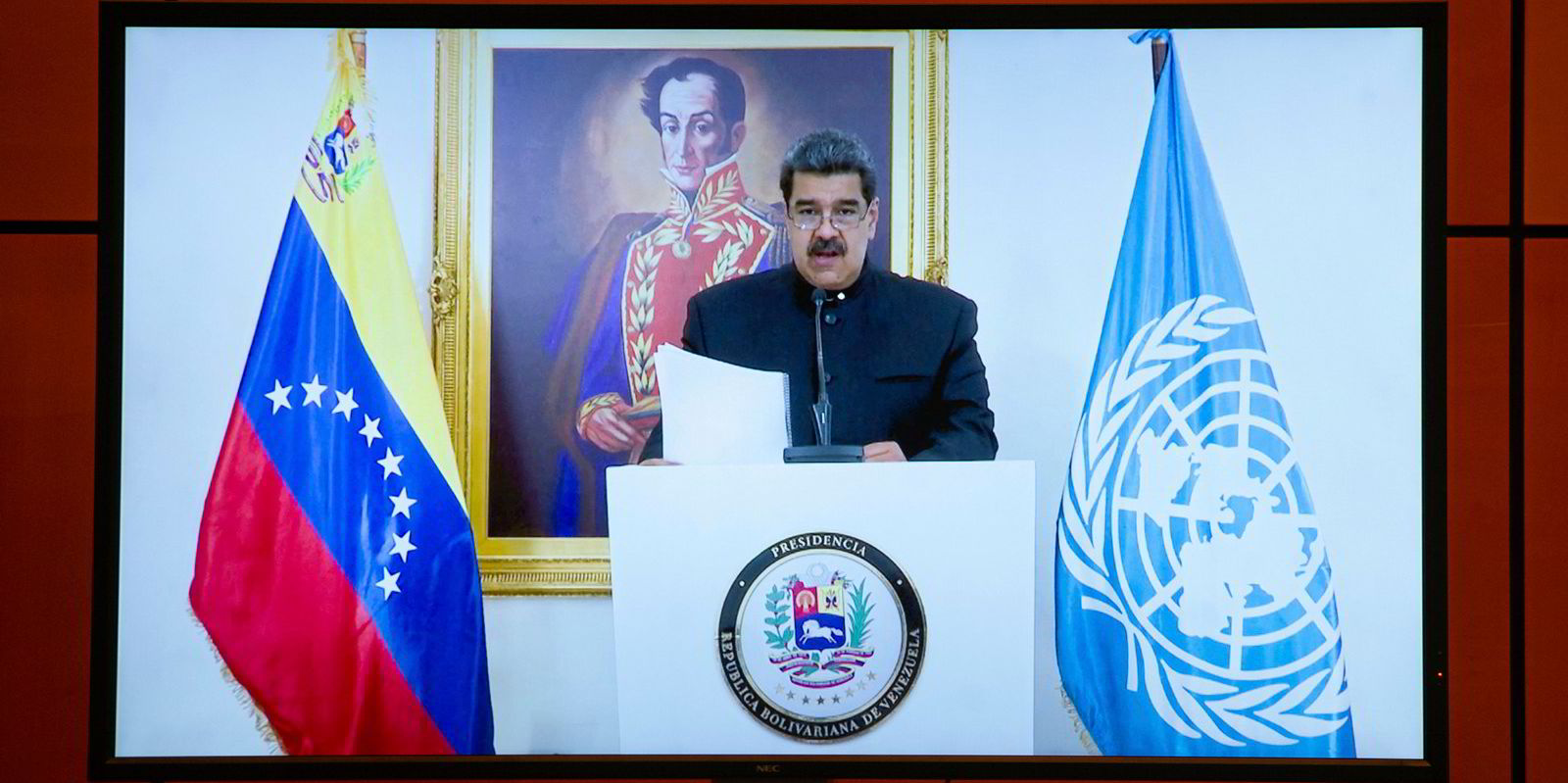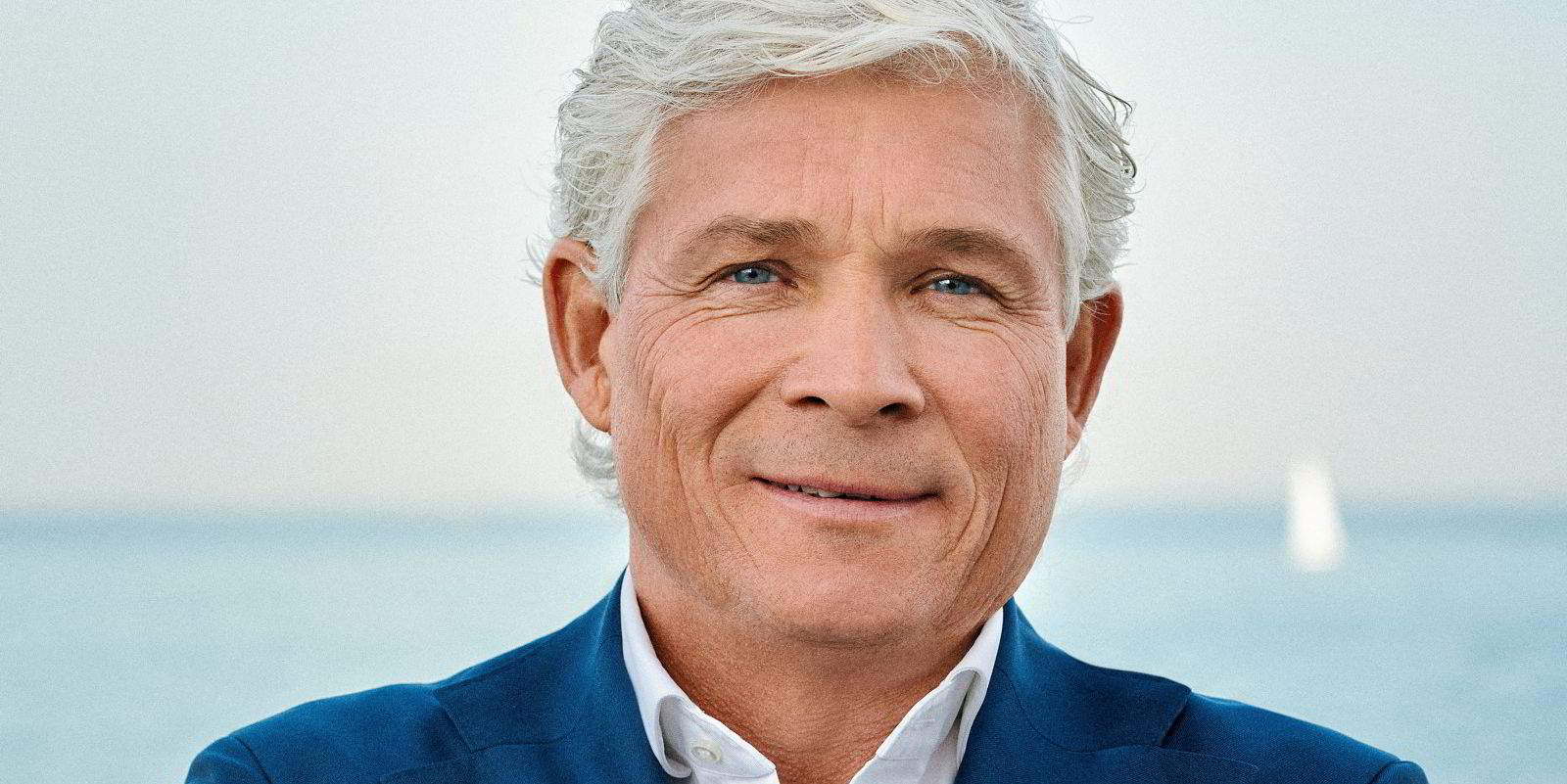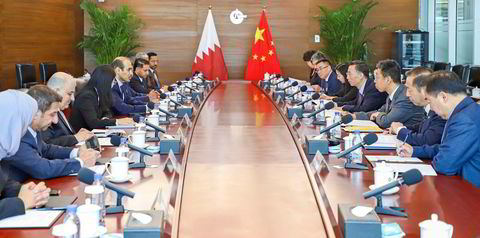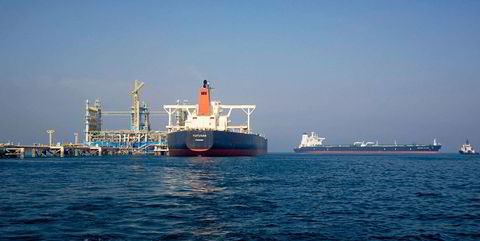The shifting nature of the global sanctions programmes has led to an oversupply of the largest tankers involved in shadow fleet operations, according to a new report by data analyst Vortexa.
The temporary lifting of US financial measures targeting Venezuela has left some VLCCs idling off the coast of the producer nation while others have switched to Iranian and Russian trades to secure business.
The Biden administration temporarily eased sanctions in October, which saw the price discount for its barrels reduced and major customer China looking to buy barrels from alternative markets, Vortexa senior oil risk analyst Armen Azizian said.
Nine VLCCs have been involved in the ship-to-ship (STS) transfers of Russian crude from smaller tankers this year driving such operations to a 10-month high in April, he said. The tankers average 20 years old with the oldest at 24.
The nine had previously been involved in the Iranian or the sanctioned Venezuelan trade. They include the 301,000-dwt Anthea (built 2005), which was blacklisted by the US earlier this month.
The Anthea was one of 13 ships from the stable of United Arab Emirates-based ship manager Oceanlink Maritime blacklisted because of US claims they were involved in the shipment of Iranian crude on behalf of the country’s military.
The Anthea loaded 1.2m barrels of Russian Urals via STS before it was sanctioned, Vortexa said. Ship tracking data suggests the tanker has just left the southern Red Sea heading for Asia. Most of the VLCCs have headed to China, Vortexa said.
“This return of VLCCs to the Russian trade, specifically these tankers involved in the sanctioned trade, suggests there is surplus tonnage in the VLCC segment of the opaque fleet,” Azizian wrote.
He said that about 20% of the global fleet of VLCCs had been involved in moving sanctioned oil from Iran and Venezuela since January 2021. Clarksons has identified 908 VLCCs or larger tankers in the global fleet.
A new shake-up could be triggered later this week if the US decides to reimpose sanctions on Venezuela after six months because of President Nicolas Maduro’s failure to meet his pledges on free and fair elections.
Sovcomflot chief executive Igor Tonkovidov admitted this week that the sanctions measures have affected the state oil carrier’s operations. He said 8% of the tanker fleet carrying Russian oil falls under Western sanctions.
Up to a quarter of Russian oil is carried by tankers controlled by Russian companies with the rest transported by the shadow fleet, he told reporters at an oil event in Moscow.
Read more
- Sovcomflot boss concedes sanctions hit as ‘old horse’ shadow-fleet tankers take centre stage
- Tankers look to be unscathed as the return of Venezuelan sanctions looms
- China amasses giant stockpile of Russian oil at new storage base
- Ukraine torpedoes deal with Russia to secure safe shipping in Black Sea war zone
- Amid outrage over Iranian seizure of container ship, focus switches to release of crew





